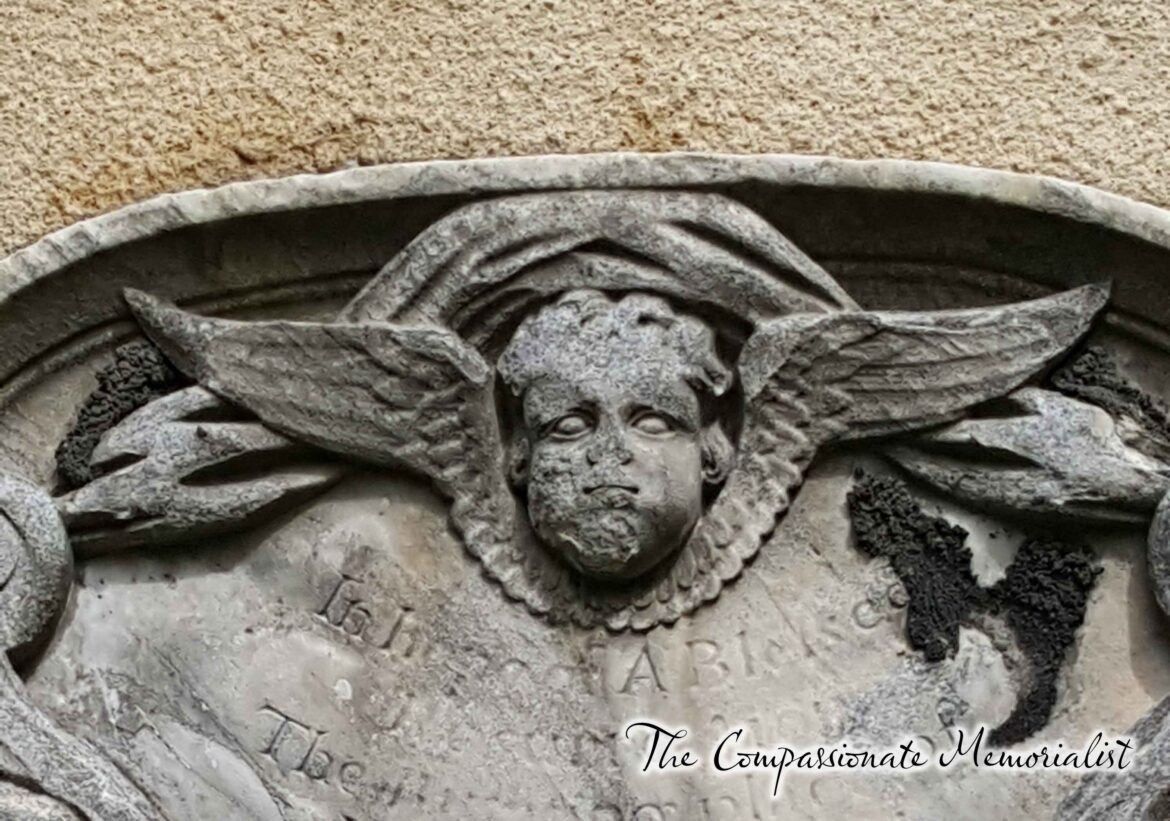Have you ever seen this hair-raising cemetery symbol? Every time I see it, it gives me the creeps!
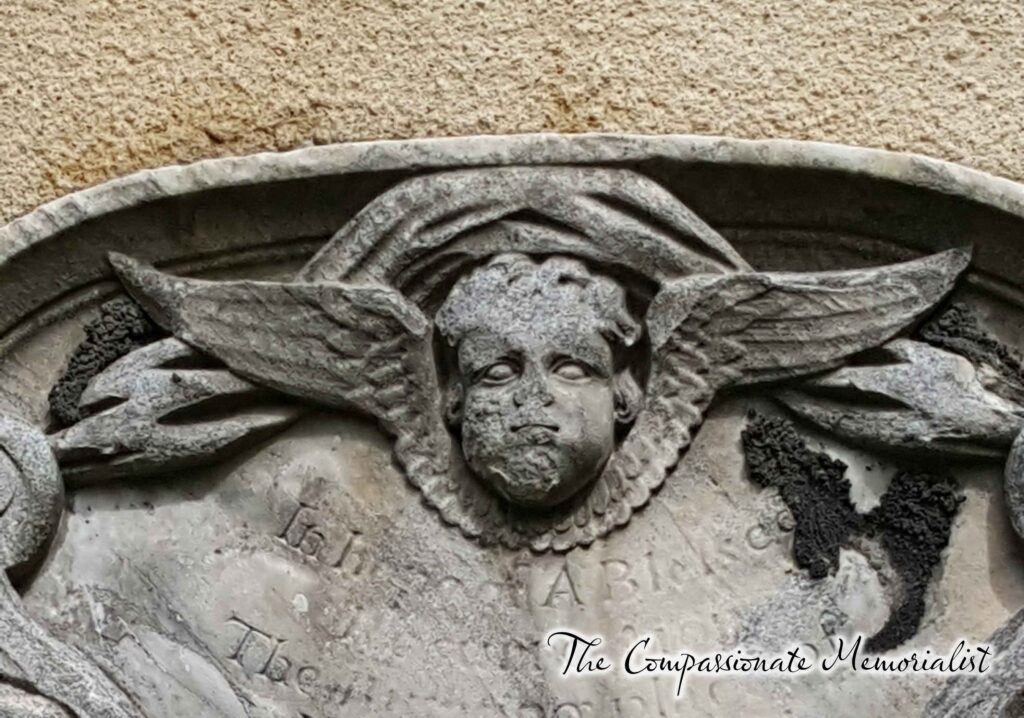
This winged face is supposed to be a winged cherub; angelic and sweet. I tend to think it looks…not angelic or sweet at all! In fact, those blank angel eyes, void of any expression or emotion, look as though they will start glowing at any given moment.
You may recall from my recent trip to the Bonaventure Cemetery in Savannah, GA, that I love cemetery symbolism. And this one is certainly worth exploring!
I have seen winged cherubs in old cemeteries and churchyards all over the UK. These winged angels may be referred to as one of several different things. Some call them a “soul effigy”, others a “winged head”. But the real, true, technical term is a death head.
The Death Head and “Memento Mori”
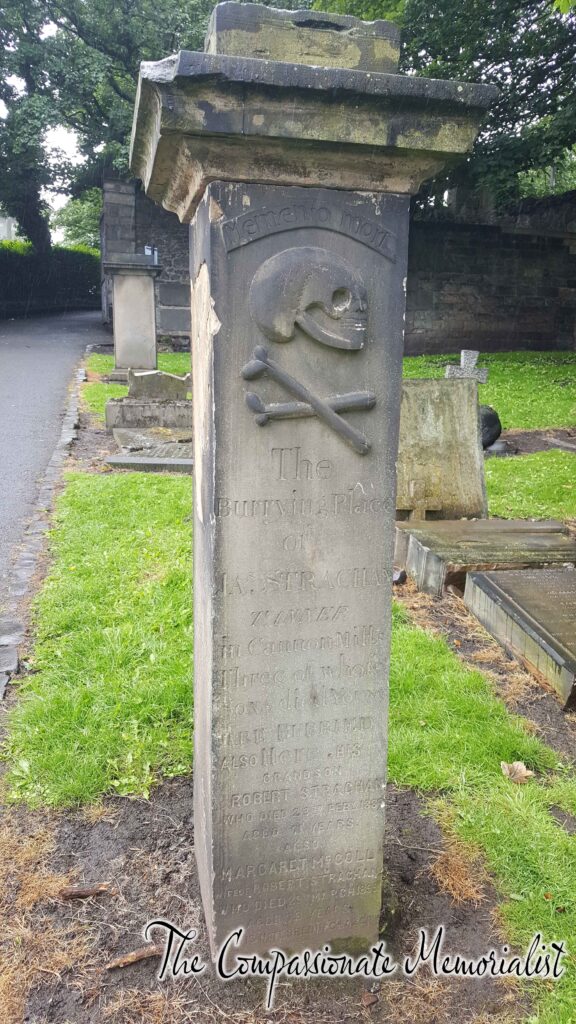
This memorial stops you in your tracks, doesn’t it? I discovered it in the New Calton Hill Cemetery in Edinburgh, Scotland. It stands nearly eye level, directly next to the pathway. Now, when I say it stands nearly eye-level, you must keep in mind that I am six feet tall! So this is a tall skull and cross bones stone- especially in comparison to shorter folks!
Those hollow eyes stare you at you as you walk by, offering a skeletal grin. It is so mysterious!
And it is the original death head.
When you think about this symbol, it is common to our every day, modern lives. It commonly indicates “poison” or “death” on chemicals, toys and other labeled household items. In fact, this symbol so commonly represents danger or death, that OSHA has adopted it as an official chemical warning symbol.
So why would a skull and crossbones be in the cemetery? One may reasonably assume that someone has died if they are in the cemetery. Why state the obvious with this symbol? And why use a symbol so…dark?
Aside from the symbol itself, you may notice the inscription “Memento Mori”.
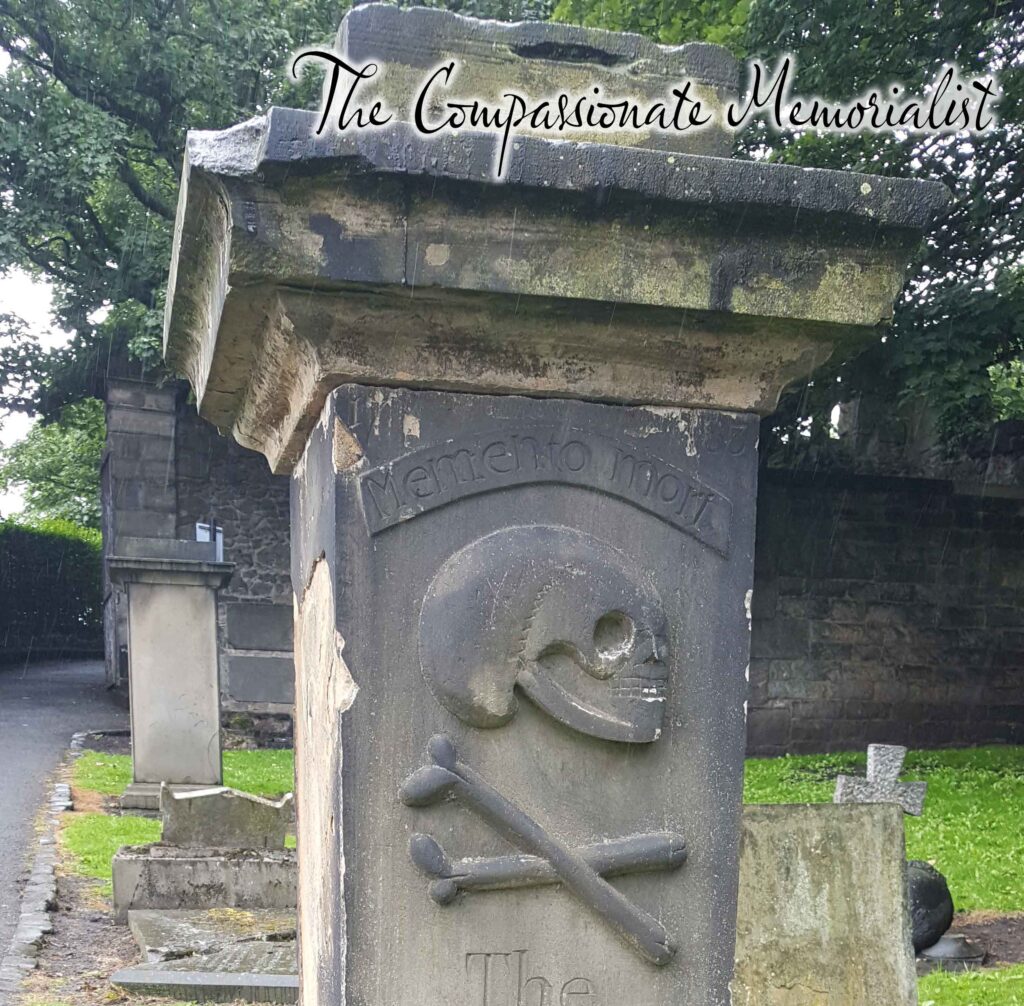
That phrase, “Memento Mori” is Latin and means Remember that you have to die.
In all my years of creating memorials, I have had folks request all kinds of interesting symbols. But never a skull and cross bones! And never a statement as dark as “Remember that you have to die”. Why is this in the cemetery??!
The Puritans and the Death Head
During the 1800s, this harsh reminder of immortality was directly linked to Puratinism. The Puritans believed that death was God’s punishment for the original sin. And they feared it very much.
The skull and cross bones, along with the phrase Memento Mori, served as a reminder to other Puritans that they were predestined to either Heaven or Hell and there was nothing they could do to save themselves from that predestination.
Not very encouraging if you didn’t like your predestination, right?
Over time, however, as religious preferences and culture evolved, so did the death head. It slowly evolved from a skull and cross bones to a winged skull- a symbol I have not yet seen in person!
And then the cemetery symbol evolved from the winged skull to the winged angel face.
Why The Death Head Evolved
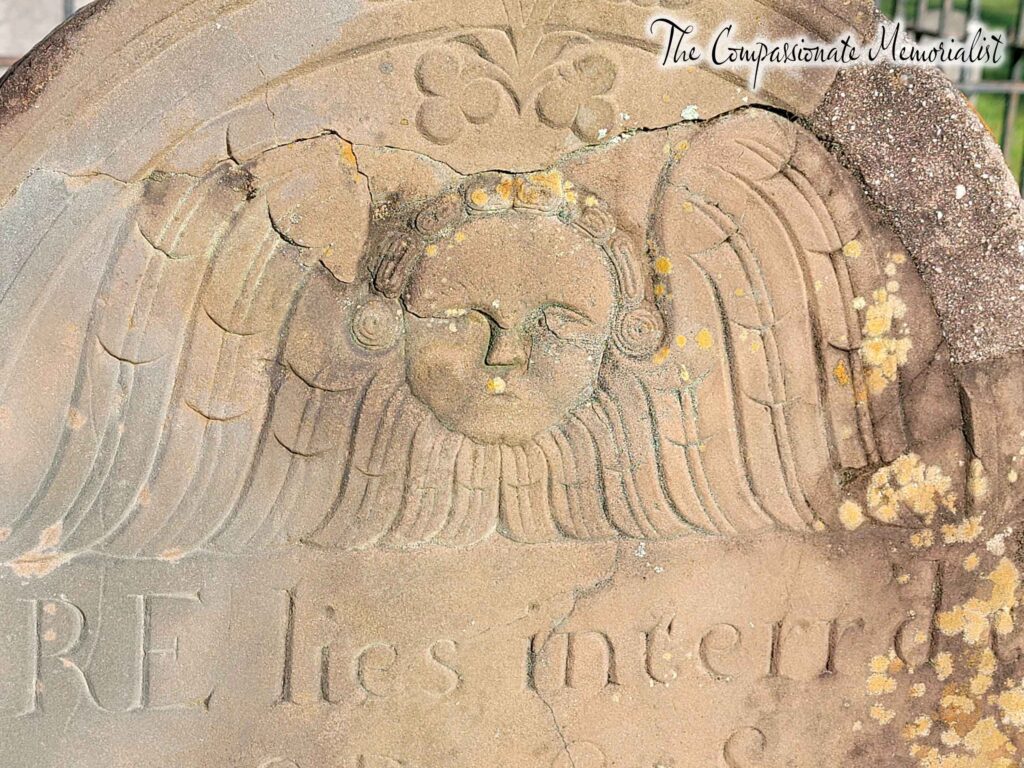
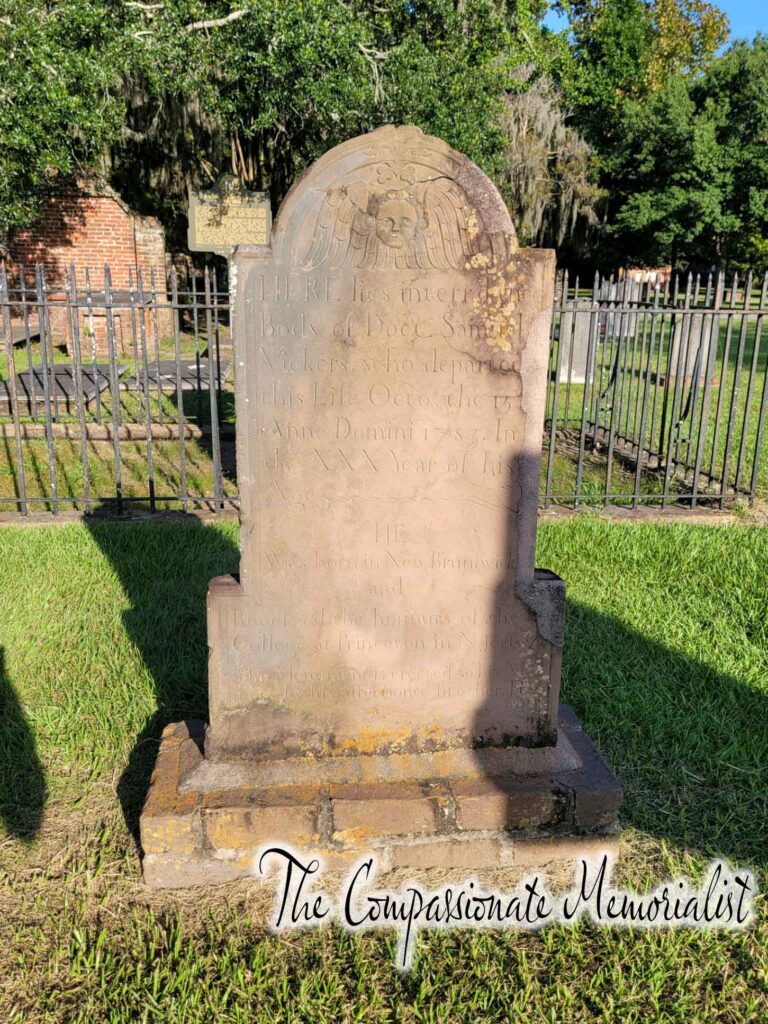
It is debatable as to why the death head evolved from the skull and cross bones to the winged angel. While many theories exist, it is my theory that cultural attitudes toward death slowly evolved and, thus, did culturally accepted cemetery symbols.
You will recall that the Puritans feared death and viewed it as punishment. However, during the Reformation in England, the Church of England became the established national church. With this Reformation was a change in beliefs regarding how one would ascend to Heaven or descend to Hell.
Beliefs began emerging that encompassed hope for eternal life after death, causing a shift to a more positive outlook on death. Thus the imagery became a little more positive in appearance and the negative inscription a little more scarce.
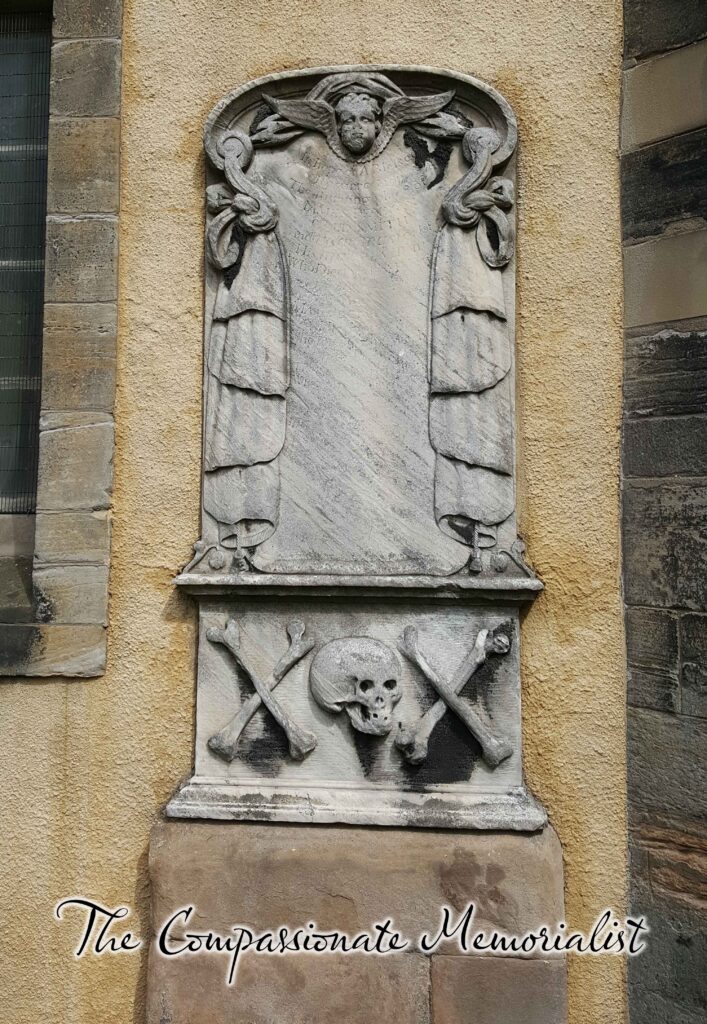
What About You?
What about you? Do you think the death head is creepy? Drop me a line and let me know!

